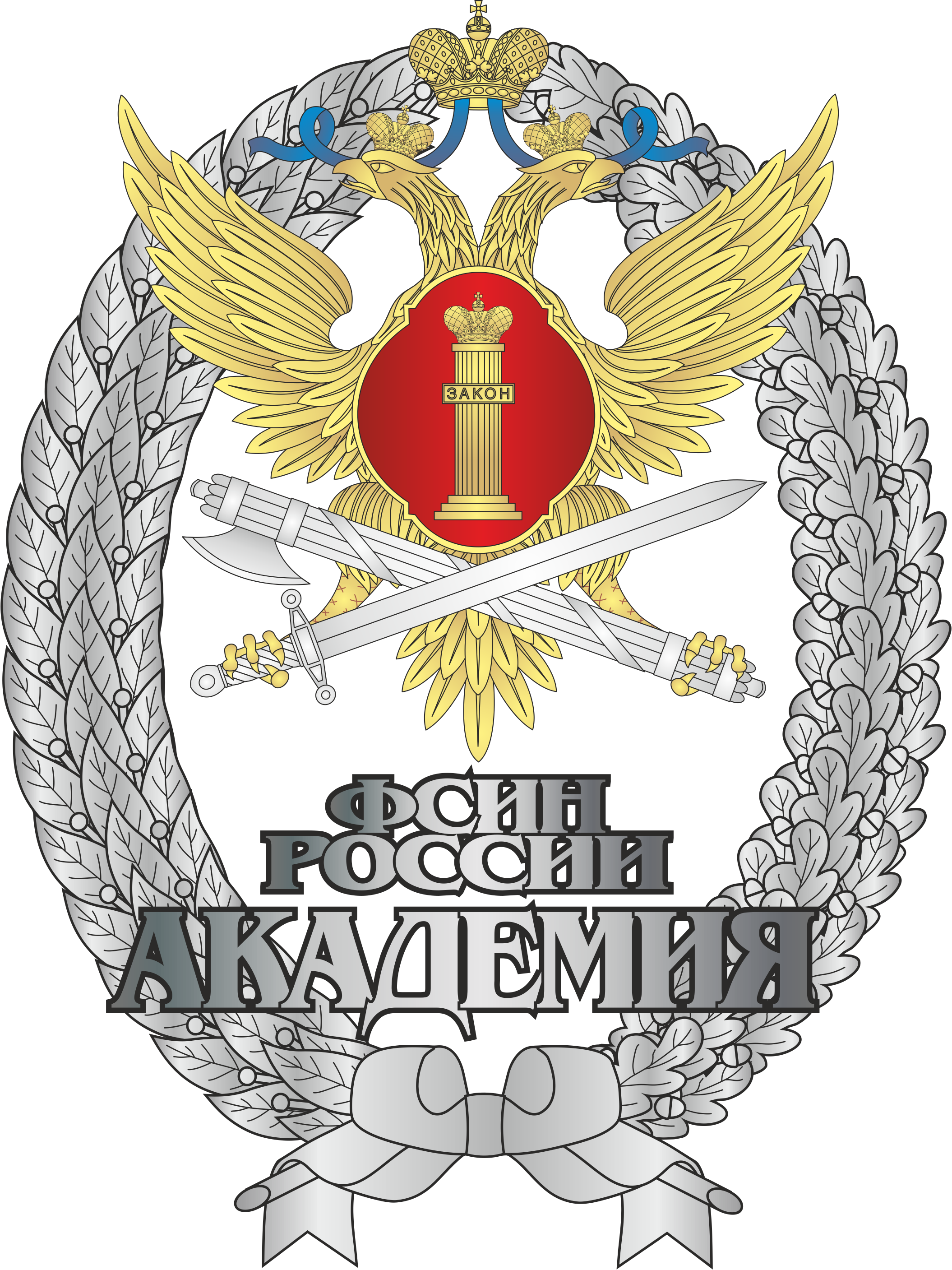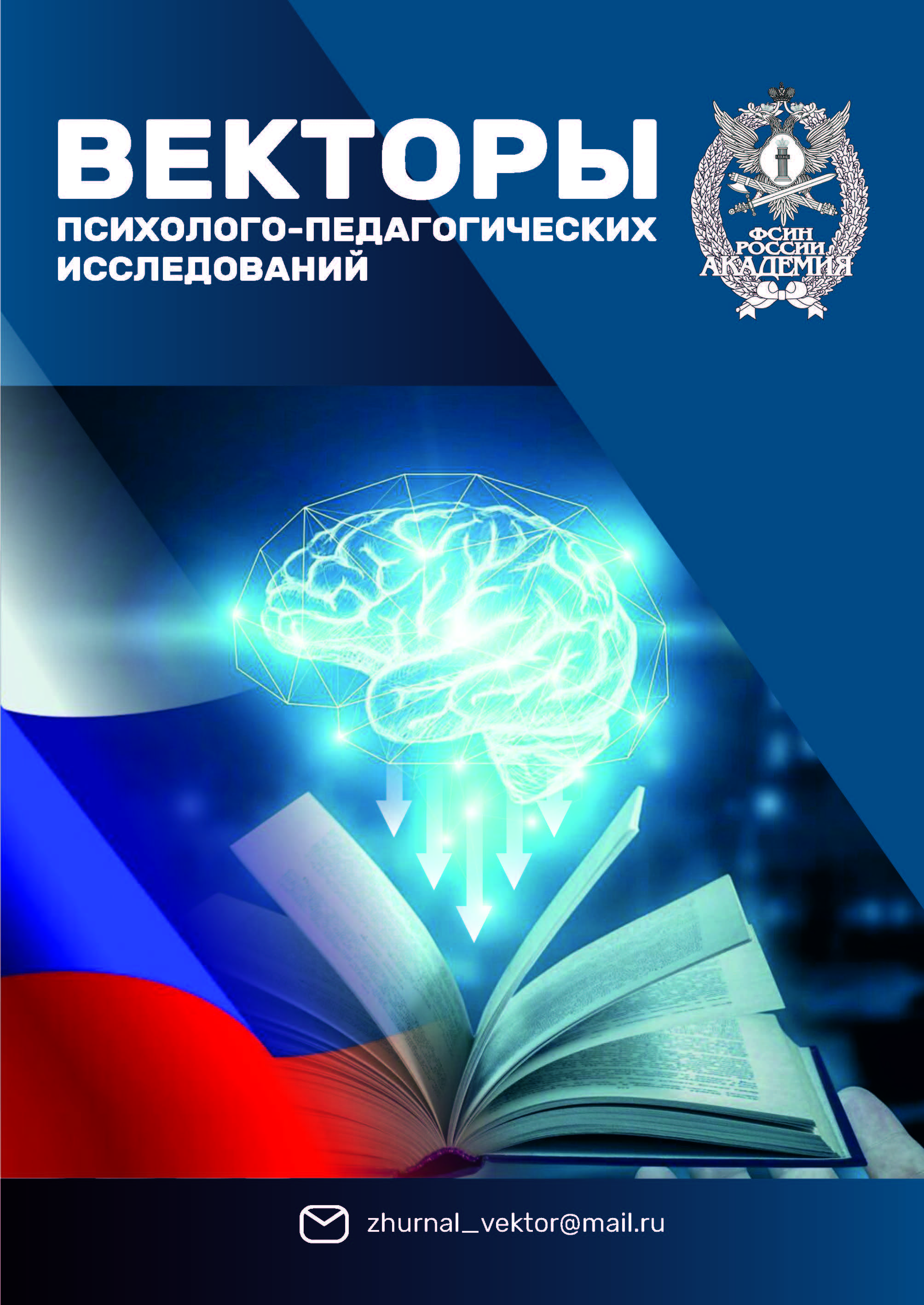Ryazan, Russian Federation
UDC 159.9
UDC 343.8
The article presents a pilot experimental study of the effectiveness of the program of psychological correction of the motivation of convicts with alcohol dependence to participate in treatment and rehabilitation programs for complete abstinence from alcohol consumption. The object of the study is men who are in places of deprivation of liberty (correctional colonies), suffering from alcohol dependence. The purpose of the study is to test the author's psychocorrective program aimed at forming a stable internal motivation to participate in treatment and rehabilitation programs for complete abstinence from alcohol consumption. The methodological basis of the evaluated psychocorrective program was the well-known three-phase model of changes by Kurt Levin, which includes the following stages: defrosting, modification and re-freezing. The study involved 72 convicts, divided into experimental (36 people) and control (36 people) groups. To diagnose motivational changes, a set of techniques was used: the "Method of color metaphors" by I. L. Solomin, the author's questionnaire "Study of the main motives contributing to the refusal of alcohol consumption in convicts serving sentences in the form of imprisonment" and the author's projective drawing technique "Draw your addiction". Statistical processing of the obtained results was carried out using the G-test sign criterion and the Wilcoxon criterion. The experimental study showed significant positive changes in the motivational sphere of convicts with alcohol dependence only in the experimental group: the share of internal motivation increased, the emotional coloring of key concepts related to sobriety, health, family and the future improved, which was confirmed by noticeable shifts in verbal statements, associations with significant concepts and projective drawings. There were no significant changes in motivation in the control group. The novelty of the study is to confirm the effectiveness of a three-phase model of psychocorrection of motivation to participate in alcohol withdrawal programs. The work demonstrated the ability of I. L. Solomin's method to identify and quantify deep-seated emotional and semantic changes in motivation for healing after a psychocorrection program in future rehabilitators. The practical significance of the work lies in the possibility of adapting and implementing the program using Kurt Levin's three-phase model of alcohol-dependent change in the penal system to increase the effectiveness of subsequent rehabilitation measures and reduce alcohol use relapses in the future. The presented study expands the understanding of the mechanisms of correction of the motivational sphere in people with alcohol dependence in conditions of imprisonment (correctional institutions).
motivation, alcohol dependence, convicts in penal colonies, treatment and rehabilitation program, projective diagnostics of motivation, Kurt Levin's three-phase model of change
1. Voronin R. M., Datiy A. V., Kuznecova A. S. Psihologicheskie osobennosti lichnosti osuzhdennyh, bol'nyh alkogolizmom // Ugolovno-ispolnitel'noe pravo. 2015. № 4(22). S. 79–82.
2. Rogach V. G. Osobennosti lichnostnogo profilya osuzhdennyh, imeyuschih alkogol'nuyu zavisimost' // Vedomosti UIS. 2023. № 5. S. 45–54.
3. Tihomirov S. M. Nedobrovol'noe lechenie i reabilitaciya zavisimyh ot alkogolya i narkotikov v uchrezhdeniyah ispolneniya nakazaniya // Aktual'nye problemy prava : materialy VI Mezhdunar. nauch. konf. (Moskva, dek. 2017 g.). M. : Buki-Vedi, 2017. S. 95–99. URL: https://moluch.ru/conf/law/archive/282/13332 (data obrascheniya: 25.07.2025).
4. Nelidov A.L. Motivacionnoe konsul'tirovanie narkologicheskih bol'nyh na nachal'nom etape lecheniya : metod. rek. N. Novgorod, 2013. 29 s. URL: https://nond-nn.ru/wp- content/uploads/pdf/motiv-koncult-narko.pdf (data obrascheniya: 23.07.2025)
5. Ustyuzhaninova E. N., Radionova D. D. Programma 12 shagov: psihologicheskiy podhod k effektivnomu lecheniyu alkogol'noy zavisimosti // Nauchnyy lider. 2024. № 1(152). URL: https://scilead.ru/article/5650-programma-12-shagov-psikhologicheskij-podkhod (data obrascheniya: 29.07.2025).
6. Prohorova T. A. Social'naya profilaktika alkogol'noy zavisimosti osuzhdennyh v mestah lisheniya svobody : materialy XV Mezhdunar. stud. nauch. konf. «Studencheskiy nauchnyy forum». URL: https://scienceforum.ru/2023/article/2018034016?ysclid=mdr0wkm2 lu663336927 (data obrascheniya: 31.07.2025).
7. Miller, W. R., Zweben, A., DiClemente C. C. & Rychtarik, R. G. 1999, ‘Motivational Enhancement Therapy Manual: A clinical research guide for therapists treating individualswith alcohol abuse and dependence’, in Margaret E. Mattson (ed.) Project MATCH Monograph Series, National Institute of Alcohol Abuse and Alcoholism, vol. 2, Rockville, Maryland, viewed 26 July 2025, https://www.niaaa.nih.gov/sites/default/files/match02.pdf.
8. Jones, G. Y., Hoffmann, N. G. 2006, ‘Alcohol dependence: international policy implications for prison populations’, Substance Abuse Treatment, Prevention, and Policy, iss. 1, 33, viewed 30 July 2025, https://substanceabusepolicy.biomedcentral.com/articles/10.1186/1747-597x-1-33.









